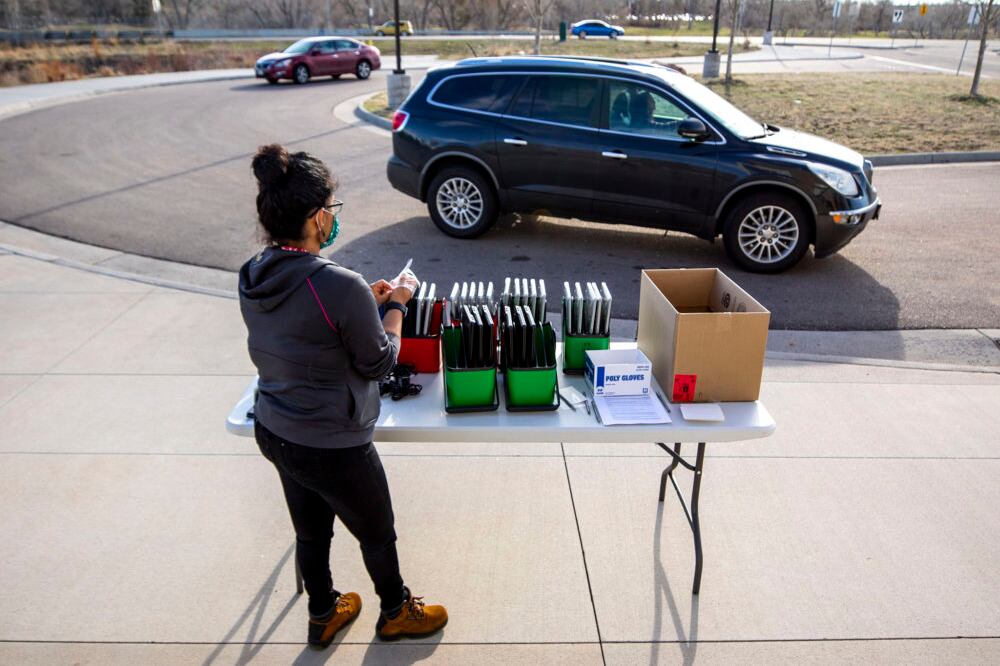Despite significant efforts to close the digital divide, Colorado education leaders say that tens of thousands of students lack reliable internet access as districts prepare for an uncertain fall semester.
While more Colorado students have tablets and laptops than when the pandemic started, internet access seems to have gotten worse as families grapple with economic challenges.
“While the device needs, our intelligence suggests, has gone down, the internet connectivity issues seem to have gone up,” Colorado Education Initiative CEO Rebecca Holmes said at a Denver Public Schools briefing Wednesday.
Leaders are calling for legislative action to close the gap, saying that districts providing mobile hotspots can’t get the job done alone.
“We think it is important that we have not just a district effort but a legislative effort to fix this,” Denver Superintendent Susana Cordova said. “And to make sure this is something that becomes a utility. Just like Xcel, just like Denver Water, just like trash pick-up, the internet should be open and available to all of our families.”
Meanwhile, internet provider Comcast announced it was extending an offer that has given some new customers free internet during the pandemic until the end of December, and changed an application question that many said was keeping undocumented families from signing up.
For months, it’s been clear that the state’s digital divide poses a big challenge for students trying to learn remotely. In April, approximately 53,000 students did not have access to devices, a needs assessment conducted by the Colorado Education Initiative found, and approximately 66,000 students did not have access to the internet.
These numbers have likely significantly decreased, as districts have used emergency funds, relief dollars, and philanthropy to buy devices. But new needs have emerged, especially for technology repair, said Holmes.
In Denver, Cordova said the district has enough devices for all of its students, but approximately 7% lack reliable broadband internet. While the district is planning to resume class in person five days a week this fall, it is also planning an all-online option for students — and, officials say, they want to be prepared in case virus cases continue to spike or outbreaks send students home intermittently.
The district is also considering pushing the start of the school year back one week, which would allow more time to check in with each student and ensure their devices and internet are working.
It’s possible that a tweak to Comcast’s application for its Internet Essentials program will lower one hurdle to getting all families connected. The application asks for a Social Security number, then gives an option to select one of any 30 different alternative forms of identification, including a school ID card or utility bill. Undocumented families have said they fear checking that box.
The application now includes additional language. “Next, we need to verify your identity using your birthday and your Social Security number or an alternate ID. We won’t share it, and we won’t perform a credit check,” it says.
After December, the service will resume its $9.95 monthly charge. Comcast said Wednesday that it will also continue waiving its requirement that customers must pay a past-due bill to qualify.
Comcast reaches communities along I-25 and I-70, including Denver, Aurora, Boulder, Longmont, Vail, Aspen, and Colorado Springs.
Correction: This story has been updated to specify that Comcast is extending its offer of free access to its Internet Essentials program, rather than the program itself.





